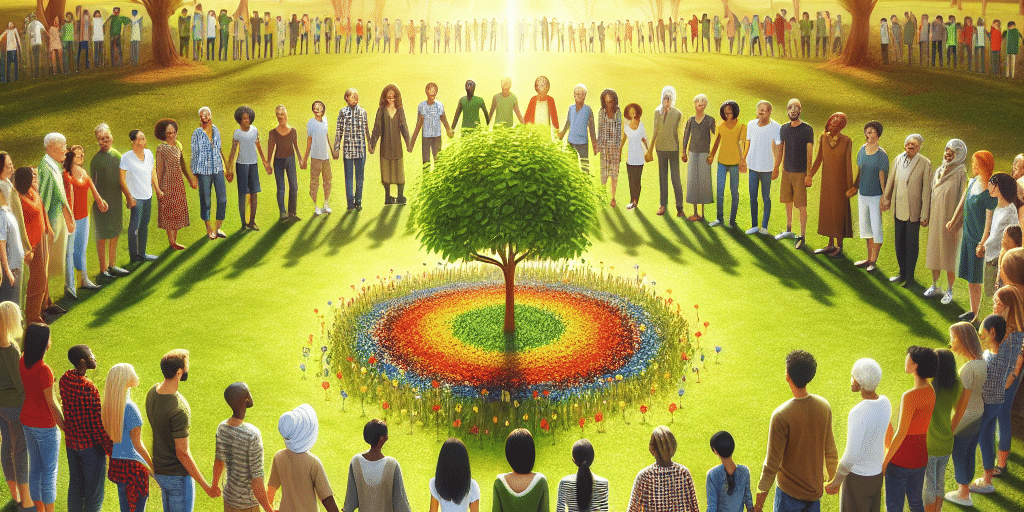The Power of Connection: How Social Bonds Shape Our Lives
In an increasingly interconnected world, the power of human connection stands as one of the most paramount aspects of our existence. From the moment we are born, we are thrust into a web of relationships that profoundly influence our emotional and psychological development. As we navigate through life, these social bonds—whether with family, friends, colleagues, or the larger community—shape who we are, how we perceive the world, and ultimately, our overall well-being. This article delves into the multifaceted roles that social connections play in our lives, highlighting their profound impact on mental health, physical health, and even our sense of purpose.
The Science of Social Connections
Psychological research has consistently shown that social relationships are crucial to maintaining mental health. The renowned psychologist and researcher, Julianne Holt-Lunstad, conducted several studies that revealed a clear correlation between strong social ties and lower rates of anxiety, depression, and other mental health issues. In fact, having solid social relationships is associated with a 50% increased likelihood of survival in both healthy and sick individuals, suggesting that the emotional support derived from these connections can significantly bolster resilience against life’s challenges.
Stress Reduction and Emotional Support
The human brain is wired for social interaction. When we engage with others, especially loved ones, our bodies produce oxytocin, often referred to as the "love hormone.” This powerful chemical fosters feelings of trust, compassion, and empathy while simultaneously reducing stress levels. Conversely, loneliness and social isolation can trigger the release of cortisol, the stress hormone, which may lead to a variety of health issues. This means that nurturing our social bonds can act as a buffer against stressors, creating a safety net that promotes emotional stability and resilience.
The Ripple Effect of Connections
Social bonds extend beyond individual benefits; they create a ripple effect within communities. Positive social ties foster environments where cooperation and trust flourish. This, in turn, strengthens community resilience and collective well-being. For instance, neighborhoods characterized by strong social interactions often report lower crime rates and higher levels of civic engagement. Community-wide social support systems enable individuals to overcome hardships, amplifying the power of connection to not only uplift individuals but also enhance the quality of life for entire communities.
Connection and Physical Health
The implications of social connections on physical health are equally remarkable. Studies have shown that individuals with robust social networks tend to have healthier lifestyles, participating in regular exercise and adhering to medical advice better than those who are isolated. Furthermore, a strong social circle has been linked to lower risks of cardiovascular disease and stronger immune responses. The social support derived from these relationships encourages healthier choices, reminding us that our social environments play a critical role in our overall physical health.
A Sense of Purpose and Identity
Connections not only fulfill our basic emotional and psychological needs but also contribute to our sense of purpose and identity. Relationships provide us with a context in which we can define ourselves and our roles in the world. Whether we draw identity from being a friend, a partner, a parent, or a community member, these social roles shape our values, beliefs, and goals. Being part of a community or a close-knit family can instill a sense of responsibility, motivating individuals to strive for personal growth and contribute positively to society.
Digital Connections: A Double-Edged Sword
In the digital age, social connections have taken new forms. Social media platforms and online communities provide unprecedented opportunities for interaction, enabling individuals to connect across vast distances. However, this evolution brings both advantages and challenges. While online interactions can combat feelings of loneliness and foster new friendships, they can also lead to superficial connections and increased feelings of isolation. In an effort to maximize the benefits of technology while mitigating its drawbacks, it’s essential to maintain a balance between virtual and in-person interactions, emphasizing the value of genuine, face-to-face relationships.
Conclusion
As we traverse the intricate tapestry of life, the power of connection emerges as a vital thread weaving together the collective human experience. From enhancing mental and physical health to fostering community resilience and personal identity, social bonds profoundly impact our lives in myriad ways. By prioritizing meaningful relationships and nurturing connections, we not only enrich our own lives but also contribute to a more compassionate and connected society. In this ever-evolving world, let us remember that it is our relationships that ultimately define us, reminding us that we are never truly alone in this journey of life.










